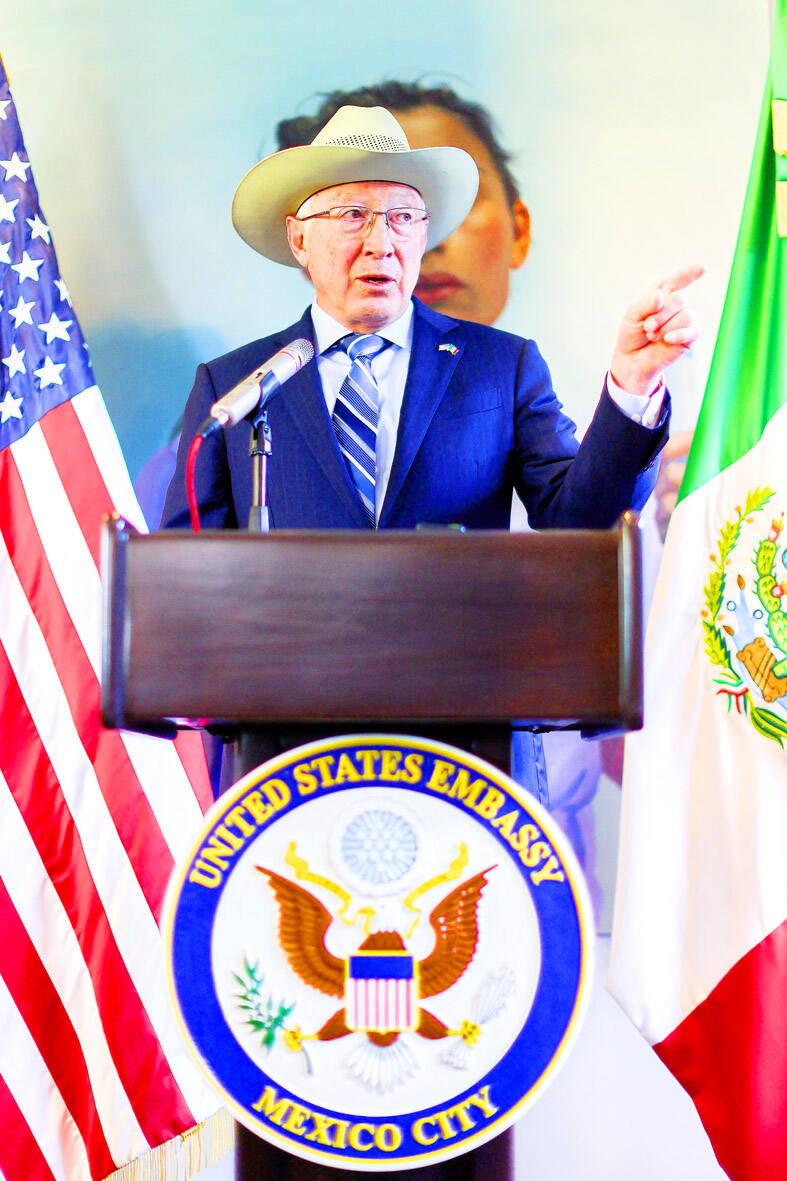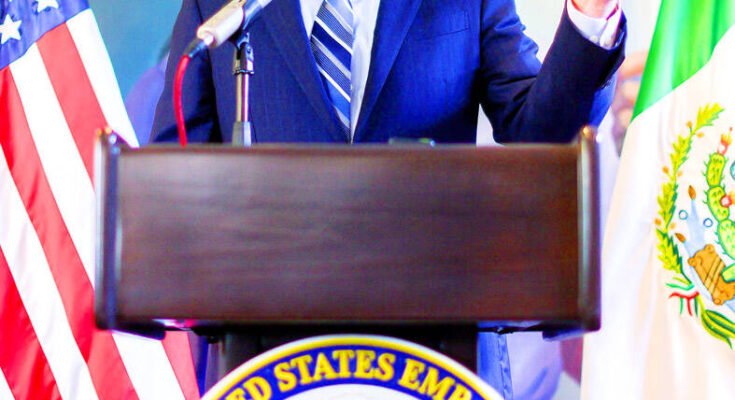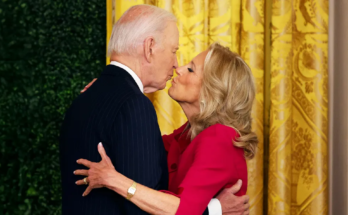‘HUGS NOT WORKING’: Ken Salazar said that the bodies of people killed by violence ‘can be seen everywhere’ and that the nation’s leaders were downplaying the issue
AP, MEXICO CITY
Mexico failed to accept aid in its fight against drug cartels and “closed the doors” on security cooperation with Washington, US Ambassador to Mexico Ken Salazar told a news conference in Mexico City on Wednesday.
Salazar said there was rampant violence, police corruption and that the Mexican government had the mistaken attitude that “there is no problem.”
“When they just say: ‘There is no problem, we have these statistics to show people there is no problem,’ that is not based on reality,” Salazar said. “There is a very big problem.”

US Ambassador to Mexico Ken Salazar speaks at a news conference in Mexico City on Wednesday.
Photo: Reuters
Mexico sent a diplomatic note to the US embassy “expressing its surprise” at Salazar’s statement, the Mexican Ministry of Foreign Affairs said in a statement later on Wednesday.
Salazar cited violence in the past few days in the northern state of Sinaloa as an example.
Sinaloa State Police Chief Gerardo Merida said that authorities found a pile of five to seven bodies on a roadside there, but were still counting body parts to see how many there were.
“There is a pile of various bodies, with what we have found we have identified five bodies, but some are in pieces, they have been dismembered, there are mentions of seven,” Merida said.
Sinaloa Governor Ruben Rocha seemed to typify Mexico’s attitude when he said on Tuesday —after a similar number of dead bodies were dumped on roadsides — that “we’re doing well, we’ll get over this soon.”
Salazar said that in Sinaloa “the dead can be seen everywhere.”
Salazar had previously defended many of the Mexican government’s actions, but he now says former Mexican president Andres Manuel Lopez Obrador’s “hugs not bullets” strategy of not confronting the cartels “did not work.”
Lopez Obrador left office on Sept. 30, but his successor, Mexican President Claudia Sheinbaum, has pledged to continue the policy, even though under her leadership troops appear more willing to open fire.
Fighting between two factions of the Sinaloa drug cartel broke out after two drug capos — one from each faction — flew to the US and were arrested there on July 25.
Drug lords Ismael “El Mayo” Zambada and Joaquin Guzman Lopez were apprehended in the US after flying there in a small plane.
Zambada later said that he was kidnapped and forced aboard the plane by Guzman Lopez, causing a violent battle between Zambada’s faction and the “Chapitos” group led by the sons of imprisoned drug lord Joaquin “El Chapo” Guzman.
Mexico later blamed the US for detaining the capos, saying that had caused the outbreak of violence.
Salazar said Mexico also shut down anti-drug cooperation after that.
“It totally accelerated from there, the Mexican government closed its doors,” Salazar said.
The ambassador also criticized efforts by Lopez Obrador and Sheinbaum to downplay the problem of crime and violence, claiming the problem was being exaggerated and crime statistics were dropping.
Salazar did not clarify why he thought the Mexican government’s numbers were untrustworthy, but in the past few days the Mexican government appears to have changed the way it reports homicide figures.
“The reality for the Mexican people, and that is for businesspeople, members of the press like you who work on the streets, those who have ranches, like the cattleman killed in Sinaloa over the weekend because he was a leader, they don’t live with security,” Salazar said.
The continuing violence “is a very serious problem in Mexico and saying there is no problem, blaming someone else, blaming the United States, obviously is not” the solution, he said.



